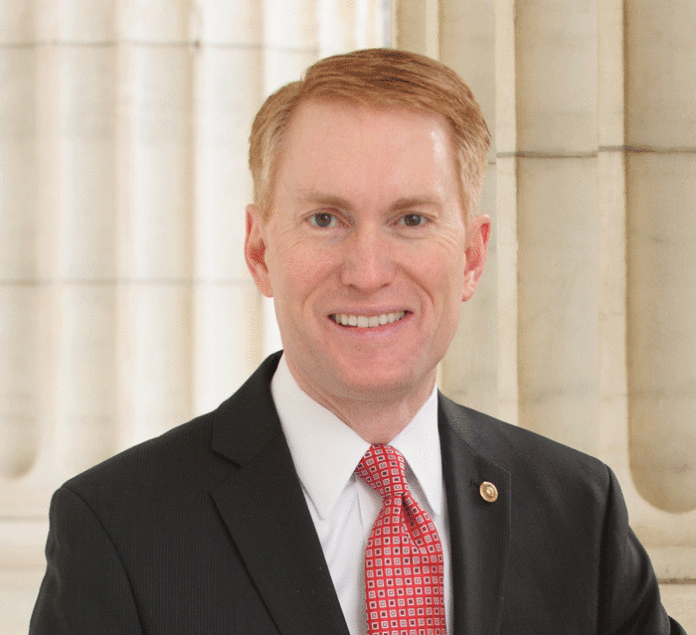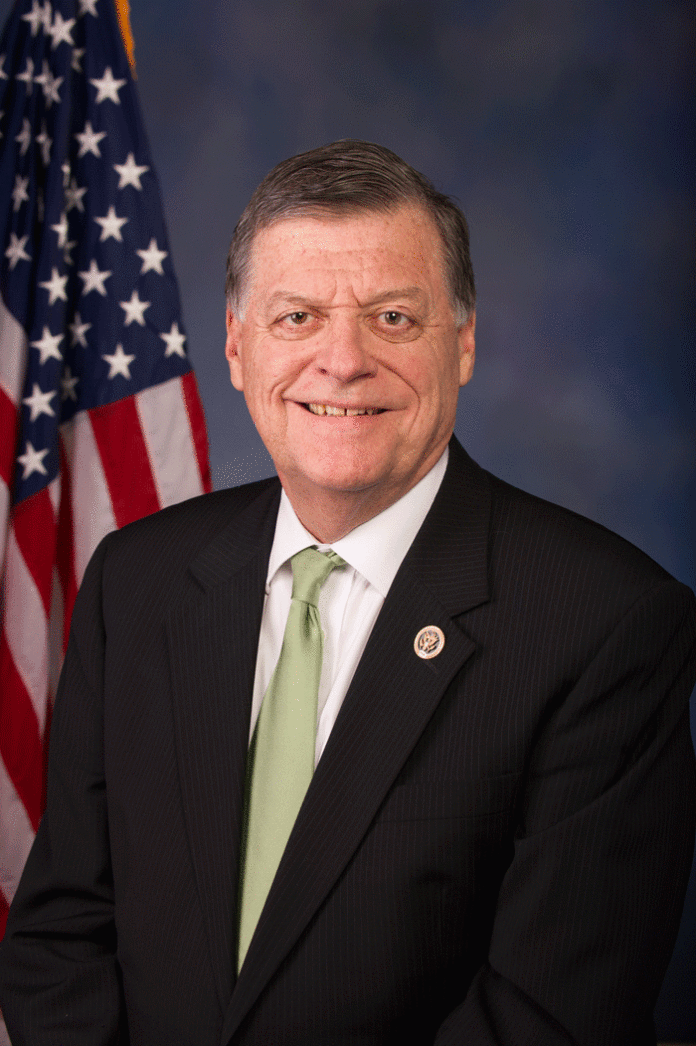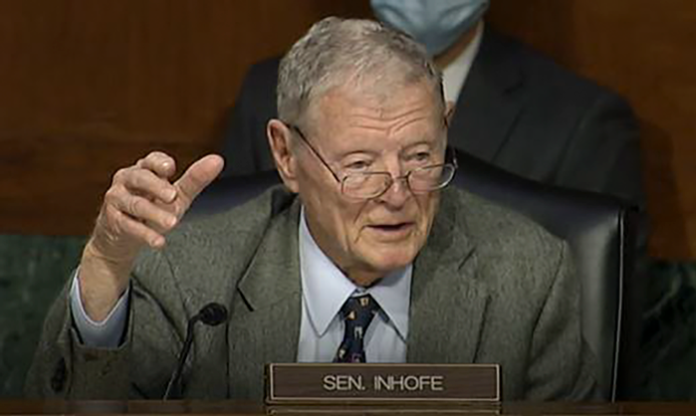Washington, D.C. – Congressman Tom Cole (OK-04), Congresswoman Dina Titus (NV-01), Congressman Markwayne Mullin (OK-02), Senator James Inhofe (R-OK) and Senator Jacky Rosen (D-NV) today introduced the bipartisan, bicameral Medical Student Education Authorization Act, to authorize the Medical Student Education (MSE) Program for five years. The MSE Program provides grants to public institutions of higher education to expand or support graduate education for physicians in states with the most severe primary care provider shortages. First created in 2019 by Congressman Cole and Senator Inhofe, the MSE Program is currently subject to annual authorizations, which results in significant uncertainty over funding and long-term planning for funded institutions.
“When training is offered in medically underserved communities, physicians are much more likely to choose to practice there later in their careers, which directly benefits those living in those areas,” said Cole. “Authorization of the Medical Student Education Program for five years would allow community-based experiential training in tribal, rural and medically underserved communities to continue with long-term certainty. I am proud to join my colleagues across the aisle and across the Capitol in introducing commonsense legislation that is vital to training the next generation of providers and mitigating shortages in vulnerable areas.”
“I’m proud to help lead this bipartisan bill with my colleagues from Oklahoma, Mr. Tom Cole and Mr. Markwayne Mullin. The University of Nevada, Las Vegas and the University of Nevada, Reno medical schools provide needed care to our communities and these grants will make vital funding available to help them recruit and support physician education,” said Titus. “At a time when health care is paramount, training and retaining doctors in-state will help ensure Nevadans have access to high-quality care in the years ahead.”
“Often times, people in my district have to travel long distances to see their primary care provider at small, rural hospitals or IHS and Tribally-run facilities,” said Mullin. “Between the pandemic and shortages in our workforce, it’s getting harder for these facilities to recruit new physicians. The reauthorization of this program will help states suffering from primary care shortages and support an increase in physicians who are able to offer culturally competent care. Americans who live in rural and underserved communities deserve access to quality health care and that’s why I’m proud to join my colleagues in introducing this bill.”
“Doctors play a critical role in the health and well-being of Oklahomans and individuals across the nation—as evidenced ten-fold by this pandemic,” said Inhofe. “I have always been an advocate for retaining the talent of the next generation of medical students in our state, which is why I am pleased to introduce the Medical Student Education Authorization Act alongside Rep. Cole. This bill will support medical student training in Tribal, rural and medically underserved communities, helping guarantee sufficient doctors in these areas for years to come and ensuring all Oklahomans can continue to have access to high quality health care.”
“Communities across Nevada and our country are in dire need of more health care professionals, and Congress must act to fill these gaps and ensure access to quality medical care,” said Rosen. “This bipartisan legislation would authorize the Medical Student Education program for another five years, and address the physician shortage for states like Nevada that have significant shortages by supporting the next generation of medical professionals.”
Upon introduction, the legislation received strong support from relevant individuals and organizations.
“The AHA commends Representatives Cole, Mullin and Titus and Senators Inhofe and Rosen for introducing this important bipartisan legislation to help increase the number of physicians across the country, especially in areas with the most severe provider shortages,” said Stacey Hughes, AHA Executive Vice President. “Having a talented, qualified, engaged and diverse workforce is at the heart of America’s health care system but many physicians and other health care professionals are exhausted from two years of being on the front lines battling COVID-19. We look forward to working with Congress to pass this critical legislation that will continue to help build the physician workforce pipeline, especially in medically underserved communities.”
“National Rural Health Association (NRHA) applauds Representatives Cole, Titus, and Mullin and Senators Inhofe and Rosen for introducing the Medical Student Education Authorization Act. Since the Medical Student Education (MSE) Program was first authorized in 2019, it has made a profound impact on training physicians in rural communities. We know that physician’s training experiences in rural communities result in higher practices rates is rural areas. Passing a five year authorization of the MSE Program, as this legislation does, will be helpful for stabilizing the depleting workforce in rural communities. As rural communities rebound from the COVID-19 pandemic, strengthening the workforce is a top priority for NRHA. Programs like the MSE Program are critical to ensuring rural communities have the workforce they need to provide services for their residents,” said Alan Morgan, Chief Executive Officer of the National Rural Health Association.
“This legislation would benefit Tribal health programs by increasing the number of Indian health providers and providing training to better serve American Indian and Alaska Native patients. This bill provides grants to higher education institutions in states with severe health care provider shortages. The emphasis on partnerships between these institutions and Tribal nations, integrating behavioral health into primary care, and addressing health equities will complement Tribal nations’ efforts to enhance their health care delivery systems. We call upon Congress to pass this legislation and get it signed into law this year,” said Chairman of the National Indian Health Board, William Smith.
“Oklahoma’s physician residency programs are of the utmost importance right now, especially considering the COVID-19 pandemic’s impact on the healthcare workforce. The Medical School Education Authorization Act will help solve the persistent primary care provider shortages in Oklahoma,” said Mary Clarke, MD OSMA President
“Because the vast majority of Oklahoma counties face a shortage of primary care physicians, the University of Oklahoma College of Medicine places a major emphasis on enhancing the primary care experience for our medical students. Through courses in our curriculum and community partnerships across the state, our students learn about and are exposed to the needs of people who live in tribal, rural and medically underserved areas. In addition, our success in recruiting and retaining students from across Oklahoma including underrepresented areas is helping to secure a bright future. We want to thank Congressman Cole, Congresswoman Titus, Congressman Mullin, Senator Inhofe and Senator Rosen for their leadership on helping us continue to grow these educational opportunities. In doing so, we anticipate an increase in primary care physicians practicing throughout the state, ultimately helping to improve the health and quality of life for all Oklahomans,” said John Zubialde, M.D., Executive Dean, OU College of Medicine.
“Our mission at the OSU Center for Health Sciences is focused on providing health care for rural and underserved communities throughout Oklahoma. Expanding our footprint in partnership with the Cherokee Nation to establish the first tribally affiliated medical school in the nation has been instrumental in fulfilling that mission. Support such as the MSE program makes this mission come to life, and ultimately will positively impact the health outcomes for everyday Oklahomans,” said Dr. Johnny Stephens, President, OSU Center for Health Sciences.
“The MSE program has been instrumental in our work to expand medical education and clinical training opportunities into rural and tribal communities in Oklahoma. The new Cherokee Nation campus of the OSU College of Osteopathic Medicine has allowed for the expansion of OSU’s medical school class size by 50 students per year and created programs that support our recruiting from rural and tribal communities, educating future physicians on tribal land, and the expansion of clinical educational opportunities in these same communities,” said Dr. Natasha Bray, Interim Dean, OSU College of Osteopathic Medicine at the Cherokee Nation.
“Many thanks to Congresswoman Titus for her efforts to secure stable funding for the next five years for the Medical Student Education Program. This type of forward thinking will help us train more medical students in the underserved communities of Southern Nevada, including our vast tribal lands. This will also help with recruiting a diverse group of medical students who will help care for our varied urban community,” said Marc J. Kahn, Dean of Kirk Kerkorian School of Medicine at UNLV.
“Nevada desperately needs primary care physicians. We rank 48th nationally and 67% of the state’s population reside in a primary care health professional shortage area. This grant program, if expanded, will allow UNR Med to use proven strategies to recruit and retain Nevada medical students to serve the rural and underserved communities in our state,” said Melissa Piasecki, M.D., Acting Dean- UNR Med, Chief Academic Officer- Renown Health.








